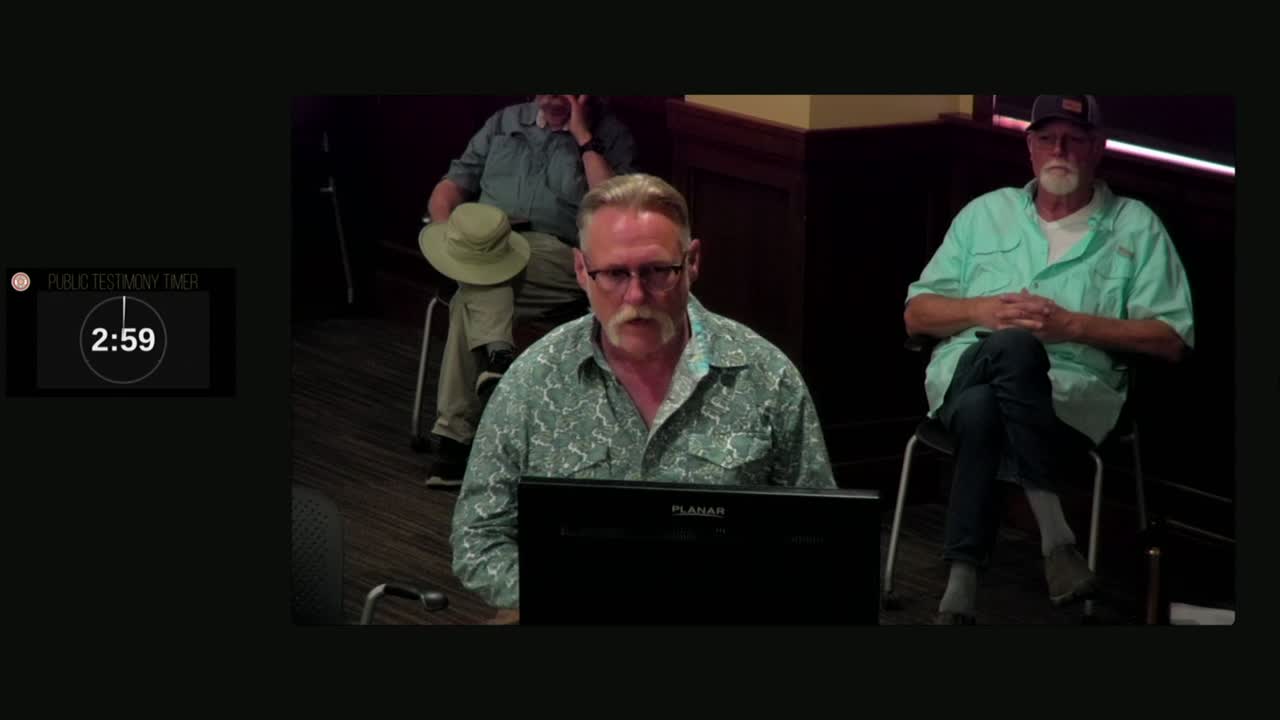Residents demand answers on code enforcement failures
July 23, 2024 | Redmond, Deschutes County, Oregon

This article was created by AI summarizing key points discussed. AI makes mistakes, so for full details and context, please refer to the video of the full meeting. Please report any errors so we can fix them. Report an error »

During a recent government meeting, a resident raised serious concerns regarding code enforcement practices in their neighborhood, specifically related to the issuance of a permit for an auto repair shop in an R-1 zoned area. The resident questioned how such a permit could be granted when it seemingly violated local zoning regulations.
The resident detailed their experience of filing complaints with code enforcement, highlighting a troubling pattern where they were required to gather photographic evidence of the alleged violations. This process not only placed an undue burden on the complainants but also led to intimidation from the permit holder, who was reportedly aware of the complaints made against them.
The resident expressed frustration over the code enforcement's reliance on photographic evidence rather than accepting eyewitness accounts, which is a standard practice in law enforcement. They questioned the rationale behind this policy, suggesting it undermines the rights of neighbors and allows permit holders to operate without accountability.
Furthermore, the resident criticized the apparent lack of recourse for citizens when code enforcement officials issue permits that contradict existing codes. They emphasized the need for a more transparent and fair enforcement process, drawing a parallel to their professional experience as a maintenance engineer, where adherence to codes is critical for operational funding and safety.
This exchange highlights ongoing tensions between residents and code enforcement authorities, raising questions about the effectiveness and fairness of current practices in managing zoning compliance and community rights.
The resident detailed their experience of filing complaints with code enforcement, highlighting a troubling pattern where they were required to gather photographic evidence of the alleged violations. This process not only placed an undue burden on the complainants but also led to intimidation from the permit holder, who was reportedly aware of the complaints made against them.
The resident expressed frustration over the code enforcement's reliance on photographic evidence rather than accepting eyewitness accounts, which is a standard practice in law enforcement. They questioned the rationale behind this policy, suggesting it undermines the rights of neighbors and allows permit holders to operate without accountability.
Furthermore, the resident criticized the apparent lack of recourse for citizens when code enforcement officials issue permits that contradict existing codes. They emphasized the need for a more transparent and fair enforcement process, drawing a parallel to their professional experience as a maintenance engineer, where adherence to codes is critical for operational funding and safety.
This exchange highlights ongoing tensions between residents and code enforcement authorities, raising questions about the effectiveness and fairness of current practices in managing zoning compliance and community rights.
View full meeting
This article is based on a recent meeting—watch the full video and explore the complete transcript for deeper insights into the discussion.
View full meeting
